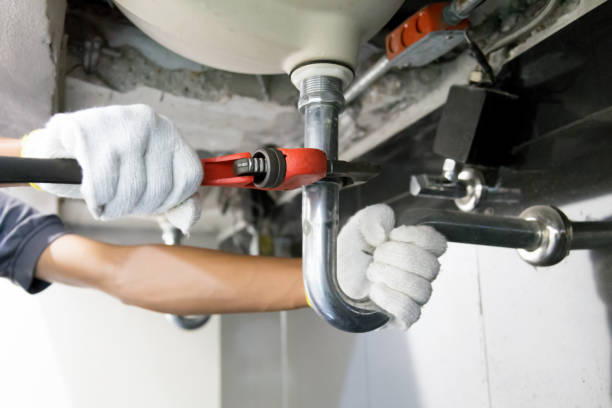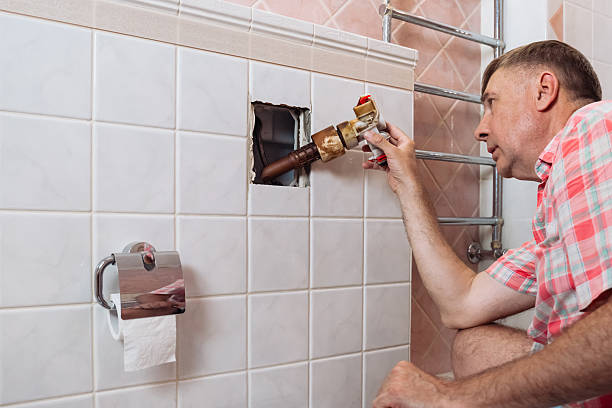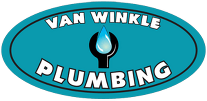
A Simple Fix for Running Toilets
Running toilets are a common nuisance in Cartersville, leading to unnecessary water wastage and increased utility bills. As someone with over 25 years of experience in plumbing, I've tackled countless cases where a constant flow of water caused not just annoyance but also significant damage if left unattended. The reasons for a toilet running perpetually can vary, but I've found that most issues originate from faulty components like flapper valves or fill valves.
In Cartersville, a city known for its unique blend of historical charm and modern living, homeowners often overlook such issues until they escalate. Addressing these problems promptly is critical, and understanding the implications is the first step toward a solution.
What Causes Toilets to Run Continuously?
From my extensive experience, I can tell you that several factors contribute to running toilets. The most typical culprits include:
- Flapper Valve Issues: A worn or misaligned flapper is the primary cause. When it doesn't seal properly, water leaks into the bowl.
- Fill Valve Malfunctions: An improperly functioning fill valve might result in an incorrect water level in the tank, leading to continuous running.
- Chain Problems: If the chain connecting the flapper to the flush handle is too long or tangled, it can prevent the flapper from sealing.
These are just a few of the common issues, and addressing them can save not only water but also long-term repair costs in the area. While these are general causes, each case can vary, and a professional assessment is often required.
How to Fix Running Toilets Cartersville
Fixing running toilets in Cartersville doesn't always require a professional. Some DIY enthusiasts may find the solution within reach. Here's a straightforward guide to diagnosing and fixing common problems:
- Remove the tank lid and check for visible issues with the flapper and chain.
- Turn off the water supply and flush the toilet to drain the tank.
- If the flapper is worn, replace it with a new one, ensuring it fits snugly.
- Adjust the chain length if it's too long, ensuring it has just enough slack to allow the flapper to seal.
- Examine the fill valve and adjust the float arm so the water level is about one inch below the top of the overflow tube.
While these steps might resolve the issue, should complications arise, reaching out to an experienced plumber remains the best course of action.
When Should You Call a Professional Plumber?
I often advise homeowners in Cartersville to seek professional help when DIY solutions don't achieve the desired results. Particularly, if you encounter:
- Leaks around the toilet base, possibly indicating a broken seal or crack in the porcelain.
- Persistent gurgling sounds, which could suggest a deeper blockage in the plumbing system.
- Flooding or overflow issues, as these can quickly escalate into expensive repairs if not addressed immediately.
Calling a professional plumber ensures that the problem is accurately diagnosed and fixed using industry-standard methods, safeguarding against further issues.
What Qualifies as a Running Toilets Cartersville Emergency?
An emergency with running toilets in Cartersville typically involves rapid water loss or potential property damage. If a toilet is overflowing, or if water cannot be turned off at the source, urgent intervention is needed.
In my experience, swift action is crucial in minimizing water damage and avoiding costly repairs. Should you face such an emergency, reaching out to a 24/7 emergency plumber like Van Winkle Plumbing is recommended.
Emergencies also include scenarios where toilets are part of a larger system failure, such as sewer line issues, which could indicate a more complex underlying problem.
Insights from a Plumbing Professional with 25 Years of Experience
Having dedicated over two decades to this field, I've witnessed the evolving nature of plumbing technologies and household needs in Cartersville. The blend of historical and new constructions means each plumbing challenge can vary significantly. One memorable case involved an older home where outdated materials led to recurring toilet issues until a comprehensive system update was performed.
Another instance was a new development where improper installation of plumbing fixtures resulted in continuous running toilets. A delicate balance in expertise is required to address such diverse scenarios, underscoring the importance of choosing a plumber who not only understands modern systems but also respects the historical integrity of Cartersville homes.

What are the most common causes of a running toilet?
Running toilets often result from a few common issues, such as a misaligned or worn-out flapper valve, a fill valve that isn't functioning properly, or problems with the chain connecting the flush handle to the flapper. Each of these components plays a critical role in the proper functioning of your toilet, and when one fails, it can lead to continuous water flow. If you're experiencing this issue, checking these parts is a good starting point. If you're still uncertain, our team at Van Winkle Plumbing can offer a professional assessment to diagnose the problem accurately.
How can I fix a running toilet myself?
Fixing a running toilet can often be a straightforward DIY task. Start by removing the tank lid and inspecting the flapper for wear or misalignment. If it's damaged, replace it with a new one. Adjust the chain if it's tangled or too long. Finally, check the fill valve to ensure it regulates the water level correctly. If these steps feel a bit daunting or don't resolve the issue, don't hesitate to reach out to us at Van Winkle Plumbing for expert help.
When should I call a professional plumber for a running toilet?
While many running toilet issues can be handled on your own, there are times when it's best to call in a professional. For example, if you notice leaks around the toilet base, persistent gurgling sounds, or if there's flooding or overflow that you can't control, it's time to seek expert assistance. These issues can indicate more significant underlying problems that require the expertise and tools that professionals like those at Van Winkle Plumbing provide. Our team can ensure a thorough diagnosis and repair, preventing future issues.
What qualifies as an emergency with a running toilet?
An emergency situation involving a running toilet typically includes scenarios where water leakage is rapid or there's potential for severe property damage. For instance, an overflowing toilet or a situation where the water cannot be shut off at the source necessitates immediate professional intervention. Contacting a 24/7 emergency service like Van Winkle Plumbing can help mitigate damage and prevent high water bills or structural damage to your home.
What insights can professionals share about running toilets?
Professionals, especially those with decades of experience like our Master Plumber at Van Winkle Plumbing, can offer valuable insights into running toilets. For example, they might share anecdotes about how older homes with outdated materials often experience recurring issues until a system update is carried out, or how newly constructed homes sometimes suffer from improper installation. These stories underline the importance of expertise in both modern and historic plumbing systems, ensuring reliable and efficient solutions tailored to the unique needs of each household.
Resources
- Environmental Protection Agency - The EPA provides valuable information on water conservation and efficient plumbing practices to help save resources and reduce utility bills.
- Centers for Disease Control and Prevention - The CDC offers insights on water-related emergencies and the importance of addressing plumbing issues promptly to maintain a safe and healthy environment.
- U.S. Geological Survey - The USGS provides data on water resources, including usage trends and conservation efforts, to promote sustainable practices in plumbing and water management.
- University of Georgia Extension - The UGA Extension offers educational resources on plumbing maintenance and water-saving techniques for homeowners in Georgia, including Cartersville.
